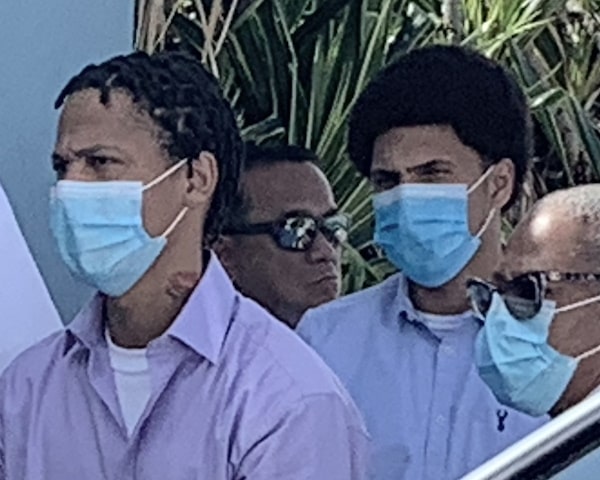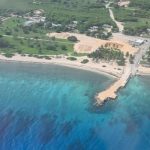Cayman remains Zika free as virus spreads in region
(CNS): There have still been no reported cases of the Zika virus in the Cayman Islands, according to Acting Medical Officer of Health Dr Samuel Williams-Rodriguez. Sixty countries worldwide have reported Zika spreading in their populations since 2015, and while there is a downward trend of cases in Central and South America, numbers are rising in the Caribbean.
“This current information on trends in the Americas and the Caribbean reinforces the fact that our best efforts must go into continued implementation of mitigation measures for the Zika virus and we continue to applaud the Mosquito Research and Control Unit (MRCU) and their efforts to control and eventually eliminate the Aedes aegypti mosquito in the Cayman Islands,” said Dr Williams-Rodriguez.
While there are no confirmed cases of the Zika here, he said dengue fever and chikungunya are also still circulating within the Caribbean region. Since January 2016, 32 patients have been tested for Zika, chikungunya and dengue. A total of 75 tests have been performed on blood samples and there are five results pending.
The MRCU in partnership with the British bio-tech firm Oxitec will begin releasing tens of thousands of genetically engineered male, sterile mosquitoes weekly in West Bay over the next few months. The goal is to try and eliminate the disease-spreading Aedes aegypti from Cayman in the face of increasing challenges to control the invasive species.
This mosquito, which lives very close to people, is becoming evermore resistant to the limited pesticides available to deal with it. MRCU Director Dr Bill Petrie is hopeful the pilot project will make a serious dent in numbers, if not completely eradicate them.
However, he still urged people to keep numbers down by preventing the build-up of stagnant water in containers in and around their homes “The Oxitec project to dramatically reduce the numbers of this mosquito continues. At the same time members of the public can protect themselves from its bite by removing any containers that can hold water from their yards,” he said
For further information contact the Public Health Department on 244-2621 or the MRCU on 949-2557.
Zika facts:
Since the Aedes aegypti mosquitoes (the primary vector for transmission) are day-biting mosquitoes, it is recommended that those who sleep during the daytime, particularly young children, the sick or elderly, should use insecticide-treated mosquito nets to provide protection. Mosquito coils or other insecticide vaporizers may also reduce the likelihood of being bitten. During outbreaks, space spraying of insecticides may be carried out periodically to kill flying mosquitoes. Suitable insecticides (recommended by the WHO Pesticide Evaluation Scheme) may also be used as larvicides to treat relatively large water containers.
Basic precautions for protection from mosquito bites should be taken by people travelling to high risk areas, especially pregnant women. These include use of repellents, wearing light-coloured, long sleeved shirts and pants, and ensuring rooms are fitted with screens to prevent mosquitoes from entering.
There is evidence that Zika virus infection during the first and second trimesters is associated with microcephaly. While the risk during the third trimester is unknown, the virus should be considered a risk throughout the duration of pregnancy. Male travellers returning from areas with ongoing Zika virus cases should consider using condoms correctly and consistently with their pregnant partner until the end of the pregnancy.The presence of viable Zika virus in semen has been detected up to 24 days after onset of Zika virus symptoms. All current cases reported to be sexually transmitted have been linked to symptomatic cases. Pregnant women continue to be cautioned to postpone non-essential travel to countries where there is an established and ongoing outbreak of the Zika virus. Ten countries have now reported evidence of sexual transmission (person-to-person) of the Zika virus, other than mosquito-borne transmission.
Countries and territories in the Americas reporting confirmed and suspected cases of Zika virus disease in pregnant women.
Barbados, Dominican Republic, Honduras, Puerto Rico, Brazil, Ecuador, Martinique, Saint Martin Bolivia , El Salvador, Mexico, Venezuela, Colombia, French Guiana , Nicaragua, Costa Rica, Guadeloupe Panama, Dominica, Guatemala, Paraguay.
Category: Health, Medical Health





































Cayman remains Zika free because they are not testing for it and turning a blind eye. George Town hospital had a patient on December 24 that was a text book case of Zika. Rash, fever, joint pain and red eyes. They gave the patient IV fluids and an injection of steroids and said they didn’t know what it was that it was most likely stress related. They did not test for Zika, they did not ask the patient where they traveled to recently..they sent the patient home. The patient then had a potentially active Zika infection and lives in mosquito infected area. There is no way the patient then wasn’t bitten by further mosquitoes because nothing was done to contain it.
AND .. there are no gangs in Cayman
Correction : The MRCU in partnership with the British bio-tech firm Oxitec will !! *NOT* !! begin releasing tens of thousands of genetically engineered male, sterile mosquitoes weekly in West Bay over the next few months.